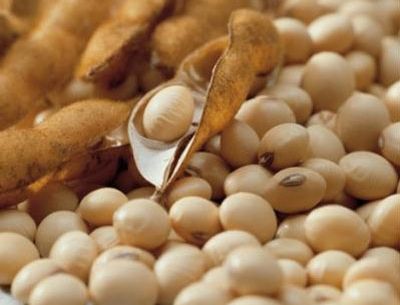Cofco International Ltd three weeks ago began building a 60,000-tonne capacity silo complex in northern Mato Grosso, Brazil’s top state for soya cultivation. It will feed into a long-distance transport network that trucks grains and oilseeds north to the Tapajós and Amazon rivers and then floats them by barge north-east to the Atlantic port of Barcarena.
“In Barcarena we load the vessels, basically to China,” Valmor Schaffer, managing director of global asset management and Brazil for Cofco International, said in an interview.
China is the world’s largest consumer of soyabeans, accounting for 60 per cent of global imports. Farmers in Brazil and the US have historically met most of its demand.
However, the trade war has upended the market. Beijing raised duties on leading US exports including soyabeans in response to tariffs the Trump administration imposed on $250bn of Chinese imports. US sales of soyabeans to China are running 89 per cent below a year ago despite a record autumn harvest, according to the US department of agriculture. One exporter just cancelled a 180,000-tonne sale to China, the department reported Friday.
The disruption has been a fillip to Brazilian farmers. Brazil’s share of Chinese soyabean imports rose to 66 per cent in the year to August, from 48 per cent the previous year, the USDA estimated.
State-controlled Cofco seeks to build Cofco International into a rival to global agribusinesses such as Archer Daniels Midland, Bunge and Cargill. It took steps in that direction with the purchase of Nidera, a Dutch grain trader, and Noble Agri, the soft commodities business of Noble Group, in a series of deals completed last year, though progress has been rocky.
The acquisitions gave Cofco a large footprint in South America. Of 66 inland storage facilities with 2.7m tonnes of capacity, 22 silos are in Brazil, 14 are in Argentina and seven are in Paraguay and Uruguay, the company said.
Cofco still ranks behind its established competitors by volume, with the company estimating that its Brazilian corn and soyabean exports bought from farmers will total 8.2m tonnes this year, with another 4m-5m procured from other traders.
“We keep building,” said Mr Schaffer, who was previously ADM’s South America president.
Cofco International does not exclusively supply China. It sells sugar, coffee and cotton, as well as grains and oilseeds, to markets in Europe, the Middle East, Africa and south-east Asia.
“We are pretty diversified in terms of destinations of our sales,” said Mr Schaffer. “Of course, the main flow is soyabeans into China. We like it and we respect it and we consider this as a big competitive advantage.”
The US-China trade war has unsettled crop prices, especially in soyabeans. Mr Schaffer said current market conditions required a “disciplined, vigilant attitude from trading management.”
“This is not related to fundamentals. This is not related to technical movements in prices. There is also a political component,” he said on a panel at the FT Commodities Americas Summit last week.
FT




